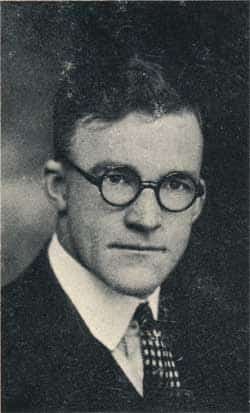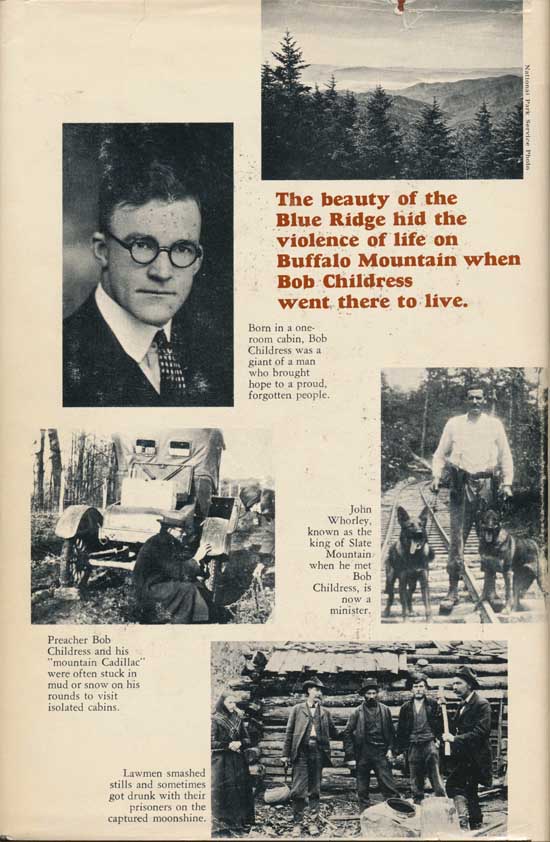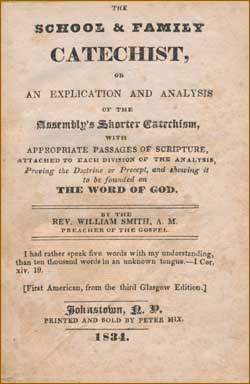The Rev. Robert W. Childress passed into glory on this day, January 16, 1956.
 When the Master has a big work to do, He raises up a big man to do it. The Lord does not always choose a man from places such as those where men would look. Such a man, from a most unlikely place, is the subject of this story. This man of God’s choosing was born in the mountains of Patrick County, Virginia, not far from the present Blue Ridge Parkway. He was born in a one-room mountain cabin, born into a large family, his people the direct descendants of Scots-Irish immigrants, and born into deep poverty and ignorance.
When the Master has a big work to do, He raises up a big man to do it. The Lord does not always choose a man from places such as those where men would look. Such a man, from a most unlikely place, is the subject of this story. This man of God’s choosing was born in the mountains of Patrick County, Virginia, not far from the present Blue Ridge Parkway. He was born in a one-room mountain cabin, born into a large family, his people the direct descendants of Scots-Irish immigrants, and born into deep poverty and ignorance.
Robert W. Childress once said that he did not know when he was given his first drink of liquor. Sundays were spent in gambling, shooting and drinking parties. Schools were little thought of. A church was seldom visited, and the thought of Sunday school was anathema to the people of his community.
But out of this lawless backwater, God saved Robert. He used a young lady who later became his wife, but who died not long after two children were born to this couple. Even in death, his wife continued to live as a powerful influence. Childress said the devil threw him sixteen times, but Christ triumphed in the end, and Robert began to look to how the Lord might use him. Against all odds, he began to pursue an education and before long, now married again and in his thirties, the Lord at last brought him to seminary to prepare for the ministry.
 A bunch of the boys dropped in with guns at one of Preacher Childress’ first services in the Virginia mountains. They told him to leave the country, or else.
A bunch of the boys dropped in with guns at one of Preacher Childress’ first services in the Virginia mountains. They told him to leave the country, or else.
“They were a little wrought up,” Childress explained. “I’d said something about their making whiskey and naturally it insulted them. They’d wanted me to apologize, and I hadn’t. I’d told them I could be just as crazy as they were.”
“So of course they were upset. They were drinking when they came to the service, and they didn’t know what they were doing. We had a little prayer,” he smiled, “and they let me off.”
“Some folks were a little rough,” he admitted, when he started work in the stretch of rugged country in Floyd, Carroll, and Patrick counties in Virginia.
“They were the best-hearted people in the world, but they just didn’t behave. There was a lot of killing, a lot of drinking, a lot of feuding. But they’ve changed.”
Time was, he recalled, when they said the politicians were afraid to come through the section, “even to solicit votes.” But no more. “There’s hardly any fighting now. There’s less drinking. The homes are better. People are happier.”
Words to Live By:
The Lord raised up Robert Childress to do a big work. He lifted him up out of incredible poverty and spiritual depravity and made him a useful vessel for His service. The faithful preaching of the Gospel of the Lord Jesus Christ brings real change to the hearts and lives of an otherwise lawless people, the world over.
Dust jacket of the biography, The Man Who Moved a Mountain, by Richard C. Davids :



